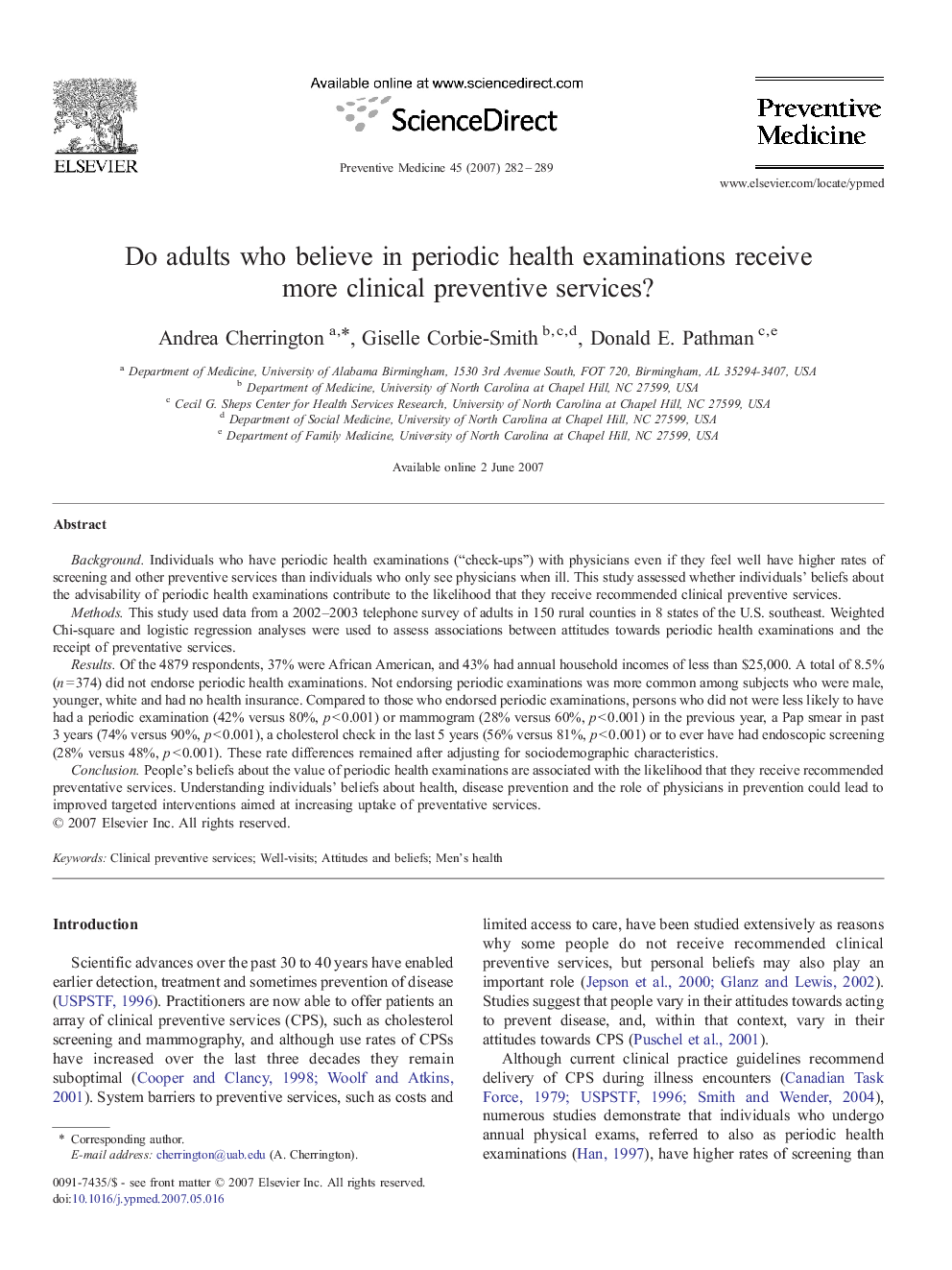| کد مقاله | کد نشریه | سال انتشار | مقاله انگلیسی | نسخه تمام متن |
|---|---|---|---|---|
| 3101895 | 1191273 | 2007 | 8 صفحه PDF | دانلود رایگان |

BackgroundIndividuals who have periodic health examinations (“check-ups”) with physicians even if they feel well have higher rates of screening and other preventive services than individuals who only see physicians when ill. This study assessed whether individuals' beliefs about the advisability of periodic health examinations contribute to the likelihood that they receive recommended clinical preventive services.MethodsThis study used data from a 2002–2003 telephone survey of adults in 150 rural counties in 8 states of the U.S. southeast. Weighted Chi-square and logistic regression analyses were used to assess associations between attitudes towards periodic health examinations and the receipt of preventative services.ResultsOf the 4879 respondents, 37% were African American, and 43% had annual household incomes of less than $25,000. A total of 8.5% (n = 374) did not endorse periodic health examinations. Not endorsing periodic examinations was more common among subjects who were male, younger, white and had no health insurance. Compared to those who endorsed periodic examinations, persons who did not were less likely to have had a periodic examination (42% versus 80%, p < 0.001) or mammogram (28% versus 60%, p < 0.001) in the previous year, a Pap smear in past 3 years (74% versus 90%, p < 0.001), a cholesterol check in the last 5 years (56% versus 81%, p < 0.001) or to ever have had endoscopic screening (28% versus 48%, p < 0.001). These rate differences remained after adjusting for sociodemographic characteristics.ConclusionPeople's beliefs about the value of periodic health examinations are associated with the likelihood that they receive recommended preventative services. Understanding individuals' beliefs about health, disease prevention and the role of physicians in prevention could lead to improved targeted interventions aimed at increasing uptake of preventative services.
Journal: Preventive Medicine - Volume 45, Issue 4, October 2007, Pages 282–289